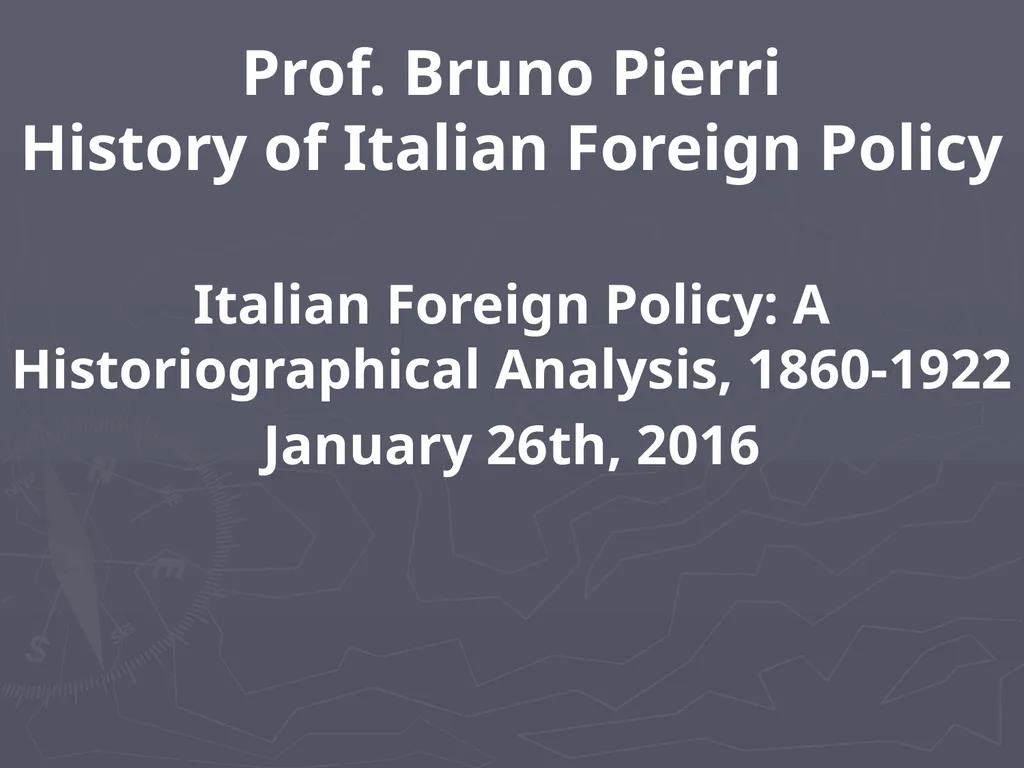
Author : luanne-stotts | Published Date : 2025-07-18
Description: Prof. Bruno Pierri History of Italian Foreign Policy Italian Foreign Policy: A Historiographical Analysis, 1860-1922 January 26th, 2016 France vs Italy Harold Nicolson, British Diplomat, 1939: Rigid French Diplomacy vs Italian mobileDownload Presentation The PPT/PDF document "" is the property of its rightful owner. Permission is granted to download and print the materials on this website for personal, non-commercial use only, and to display it on your personal computer provided you do not modify the materials and that you retain all copyright notices contained in the materials. By downloading content from our website, you accept the terms of this agreement.
Here is the link to download the presentation.
"Prof. Bruno Pierri History of Italian Foreign"The content belongs to its owner. You may download and print it for personal use, without modification, and keep all copyright notices. By downloading, you agree to these terms.













